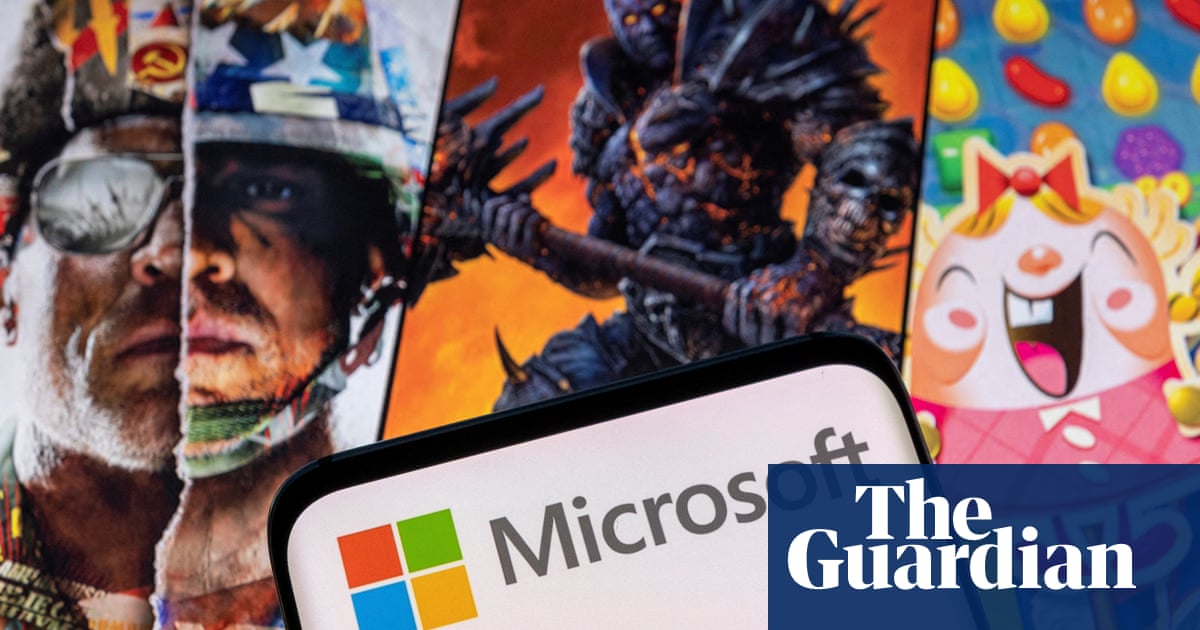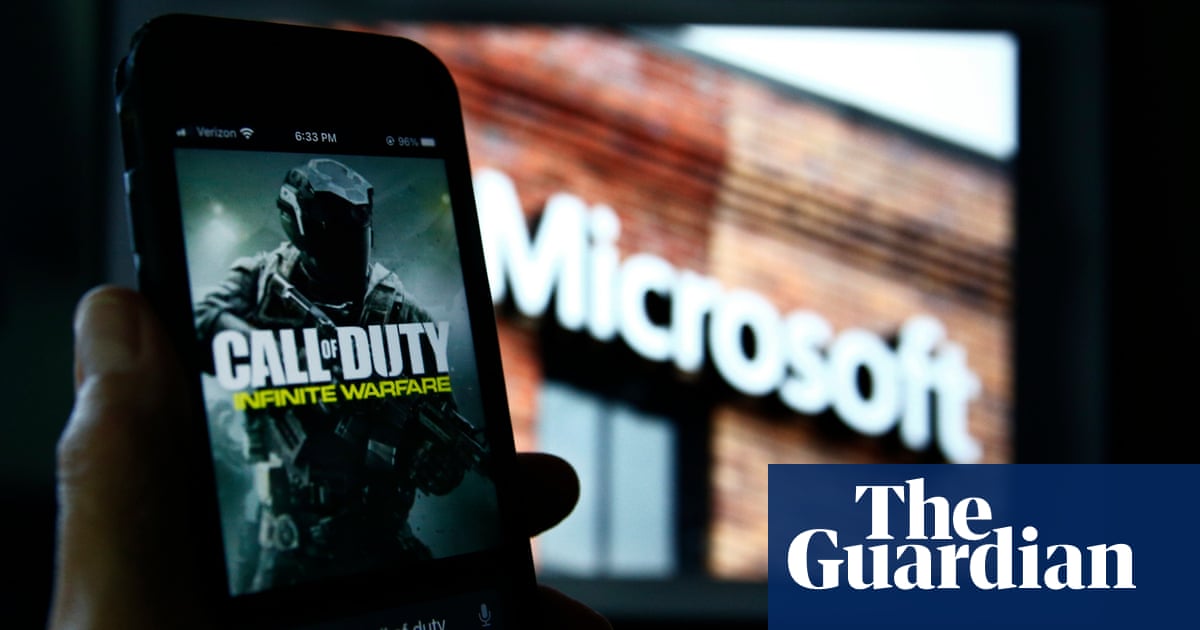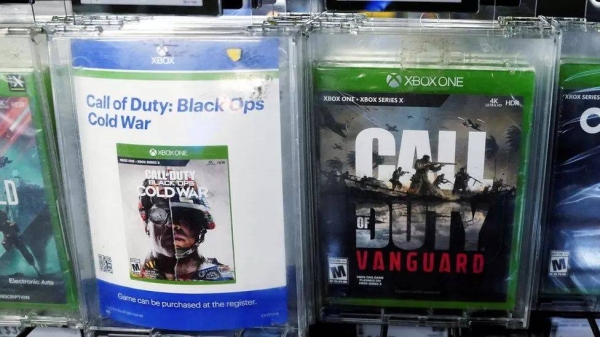
If the world of Call of Duty seems fraught enough when you are playing it, try being in it. That could be the consequence of Microsoft’s proposed $68.7bn (£50.4bn) acquisition of Activision Blizzard, the video games maker behind the shoot ’em up franchise. Announcing the deal, Satya Nadella, Microsoft’s chief executive, said that gaming would “play a key role in the development of metaverse platforms”.
The metaverse is a catch-all term for an immersive experience that blends the physical and digital worlds through a mixture of virtual and augmented reality. This concept is years away from being fully realised, but it is envisaged that participants – using digital representations of themselves, or avatars – will access it through a virtual reality headset, or augmented reality (AR) glasses that put a digital layer over what they see in the real world. In the metaverse they can socialise with friends, carry out their job – or take part in a video game.
John Egan, chief executive of market intelligence firm L’Atelier BNP Paribas, says that with the Activision deal Microsoft has made it “very clear” that gaming will be at the centre of how metaverse concepts work. And it is not just using the games, but also deploying the creative and technical talent behind them to build virtual worlds.
“Imagine Call of Duty. You’d be dropped into a Battle Royale-like environment, on to a planet like the way Fortnite is now, though bigger by a factor of several thousand. You’ve got an entire planet, so your experience can go on for weeks at a time.”
Egan adds that Call of Duty would work in what he calls a “digi-physical” environment, where AR comes in to play and the game is superimposed on participants’ glasses, or even contact lenses.
“Microsoft could create virtual layers over existing urban infrastructure, within which people can use mixed reality lenses, like glasses or contact lenses, to interact with each other. So imagine something like a skateboard park that becomes a Call of Duty arena. And people use their phones as a gun, and they’ve got their glassware on as the mixed reality infrastructure to do that interaction.”
Of course, not every metaverse world will be like Call of Duty – and not everyone would want to go anywhere near it. Egan says Activision games such as Crash Bandicoot, featuring the antics of an anthropomorphic marsupial, offer a more family-friendly alternative.
Analysts have also pointed to the fact that Activision will immediately bolster Microsoft’s gaming business – it owns the Xbox platform and the Minecraft and Halo franchises – regardless of its metaverse plans. The Bill Gates-founded company will gain access to 390 million monthly users, adding to its Game Pass subscription service, which already has 25 million users.
Dan Ives, a managing director at the US investment firm Wedbush Securities, describes Microsoft’s metaverse vision for the deal as “the cherry on top of the sundae”.
“We believe for Microsoft this was the right deal at the right time to boost its gaming strategy and streaming ambitions. Nadella recognised Microsoft’s consumer business needed a shot in the arm,” he says.
The agreed deal would also need to get past US regulators, who served notice on Tuesday that the tech industry would face a tougher regime. Lina Khan, chair of the Federal Trade Commission, the US competition watchdog, and Jonathan Kanter, head of antitrust at the department of justice, announced a review of merger guidelines – with tech among their areas of concern. Kanter said: “We need to understand why so many industries have too few competitors.”
It could be argued that this is a “vertical” deal between two businesses that do not compete directly: Microsoft’s Xbox platform and Activision’s games. But regulators are likely to look at whether Microsoft could shut off Activision titles from rival platforms such as PlayStation. Microsoft said on Tuesday it did not intend to “pull communities away” from PlayStation.
Rebecca Allensworth, professor of law at Vanderbilt University in Nashville, Tennessee, says Khan and Kanter’s review signals a toughening of the environment for tech.
“Generally, there is a lot of muscle right now behind antitrust enforcement in tech,” she says. “Changing the merger guidelines to be harsher against tech mergers is a part of that. The comments on Tuesday highlighted the idea that the guidelines need to be able to recognise competitive harm from mergers that are vertical or mixed vertical. That’s the merger between Activision and Microsoft.” Nonetheless, she says that it is “still very hard to challenge vertical mergers” and the deal may go through.
However, L’Atelier’s Egan added that even if the deal got past the FTC and justice department, there was also the question of integration. On Monday Activision said it had fired or pushed out more than three dozen employees and disciplined another 40 since July, to address allegations of sexual harassment and other misconduct at the company, which has nearly 10,000 employees to Microsoft’s 190,000.
“Microsoft has an extraordinarily high level of employee satisfaction,” says Egan. “It’s a really good company. You wonder if one of the biggest threats of this is Microsoft kind of letting the wolf in the door. How are Microsoft going to assimilate an organisation with a culture that is beset by issues to do with misogyny, diversity and harassment over the last number of years which they have failed utterly to remedy? How are Microsoft going to resolve that?”
Should the deal go through, Microsoft will have real-world concerns too.












